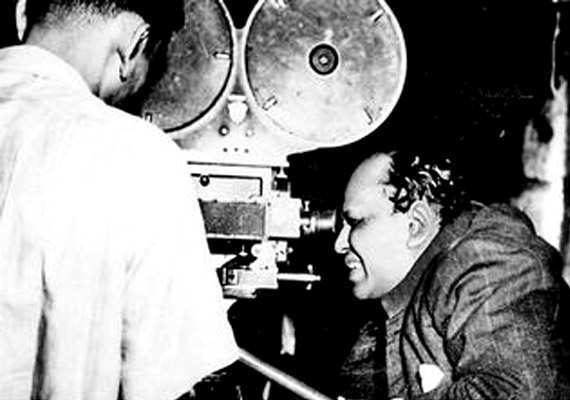Know the biography of Indian film director Devi Kumar Bose on his birthday.
Devaki Kumar Bose (English: Debaki Kumar Bose, born – November 25, 1898, West Bengal; death – November 11, 1971, Kolkata) was a very imaginative film director of the theater era, which came in the history of Indian cinema after the 'silent era'. He was an amazing expert in sound and music. This is the reason why the melody of music is scattered in all the films directed by him. Rai Chand Boral gave music in most of his films. Devaki Bose was the first Bengali film director, who created a wonderful sound melody in films by mixing 'Ravindra Sangeet' with 'Indian Classical Music'. If Devaki Bose had not joined 'New Theatres', it was possible that 'New Theatres' would not have had the fame it has today.
Birth
Devaki Bose was born on 25 November 1898 in Bardhaman district, West Bengal. His father was a renowned lawyer of his time. When Devaki Bose was completing his college studies, many revolutionaries were carrying out their activities to liberate the country. Father of the Nation Mahatma Gandhi was the most prominent among them.
Gandhiji's influence
The 'Non-Cooperation Movement' launched by Mahatma Gandhi for India's independence was at its peak. Devaki Bose himself was greatly influenced by this movement. As a result, Devaki Bose left college to take part in the movement. After leaving studies, he stayed in Calcutta (present day Kolkata) and started editing a small newspaper “Shakti”.
film direction
During these days, while doing journalism, he met Dhiren Ganguly. Devaki Bose wrote the scripts of several silent films for Dhiren Ganguly's 'British Dominion Company'. Along with this, he also directed some films, since the cinematography of all these films was done by Krishna Gopal, hence he became friends with Devaki Bose. Krishna Gopal was from Lucknow, the city of Nawabs, so he wanted to make the film while living in Lucknow only. A Lucknow-based film company 'United Film Corporation' wanted to make a film, in which the work of cinematography was entrusted to Krishna Gopal. He called Devaki Bose from Calcutta to direct the film.
The film 'The Shadow of Dad' was completed in the year 1930. But this film failed miserably. Devaki Bose went back to Calcutta from Lucknow, but the film's cinematographer Krishna Gopal was taken hostage by the company and said that 'he can leave the company only when he compensates the entire loss'. This was not in the control of Krishna Gopal. So he remained a hostage of the company and kept hoping that Devaki Bose would bring money to free him. Devaki Bose first requested Prathamesh Barua to keep him in his film company and then also got money from him to get Krishna Gopal released. In this way, Krishna Gopal could escape from the bondage of the company only because of Devaki Bose.
certificate of success
Devaki Bose's name suddenly became famous overnight with the success of 'New Theatres' film 'Chandidas'. The story of his entry into 'New Theatres' is also filmy. When seven films of 'New Theatres' flopped one after the other, Devaki Bose tried to meet Virendranath Sarkar, the owner of 'New Theatres'. Virendranath Sarkar met him, but when Devaki Bose started narrating a script he had brought with him, he asked him to narrate this script to cinematographer Nitin Bose. Devaki Bose kept trying to meet Nitin Bose for three days, but he did not even look back. It was true that they kept seeing that a young man wearing white colored dhoti and kurta was following them for many days. Finally, on the fourth day, Devaki Bose gathered courage and introduced himself to Nitin Bose and told that he had been asked by the Virendranath government to meet him. Nitin Bose heard the story in the hands of Devaki Bose during lunch and was overwhelmed as soon as he heard it. This story was none other than the script of the film “Chandidas”. As soon as 'Chandidas' was made, the struggling 'New Theatres' returned. The film became a superhit, and with it Devaki Bose also became an important personality of 'New Theatres'.


Comments are closed.